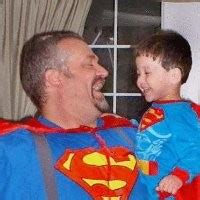A Quote by Robert Munsch
Writing is a bit like swimming. You learn writing by doing it and you learn swimming by doing it. Nobody learns how to swim by reading a book about swimming and nobody learns how to write by reading a book about writing. If you want to learn how to write, write a lot and you will get better at it.
Related Quotes
Even my colleagues don't read classic criticism. And my feeling is that if you don't do that then you're not really practicing your craft. That's how you learn how to do it. You don't learn how to write about jazz just from listening to jazz. You learn how to write by reading the great writers and how they worked, the great music critics.
Good description is a learned skill, one of the prime reasons why you cannot succeed unless you read a lot and write a lot. It’s not just a question of how-to, you see; it’s also a question of how much to. Reading will help you answer how much, and only reams of writing will help you with the how. You can learn only by doing.
There's no such thing as a folk writer. There's no such thing as somebody who's never read a book before suddenly sitting down one day and writing one. You have to learn how to captivate a reader. Right? And I don't mean you have to go to school for it. But if you're - if you pay attention, you can learn it by reading books. And so I feel like I learned a lot by reading books.
With 'Free Agent Nation,' I was figuring out how to write a book along with writing the book. Now I think I've kind of, sort of figured out how to write a book a little bit better. But the process remains not that different - slow; laborious; tiny, incremental progress each day, punctuated by feelings of despair and self-loathing.
Writing a film - more precisely, adapting a book into a film - is basically a relentless series of compromises. The skill, the "art," is to make those compromises both artistically valid and essentially your own. . . . It has been said before but is worth reiterating: writing a novel is like swimming in the sea; writing a film is like swimming in the bath.
I don't want to write poems that are just really clear about how I'm aware of all the traps involved in writing poetry; I don't want to write fiction that's about the irresponsibility of writing fiction and I've thrown out a lot of writing that I think was ultimately tainted by that kind of self-awareness.
THE WRITER can get free of his writing only by using it, that is, by reading oneself. As if the aim of writing were to use what is already written as a launching pad for reading the writing to come. Moreover, what he has written is read in the process, hence constantly modified by his reading. The book is an unbearable totality. I write against a background of facets.

































